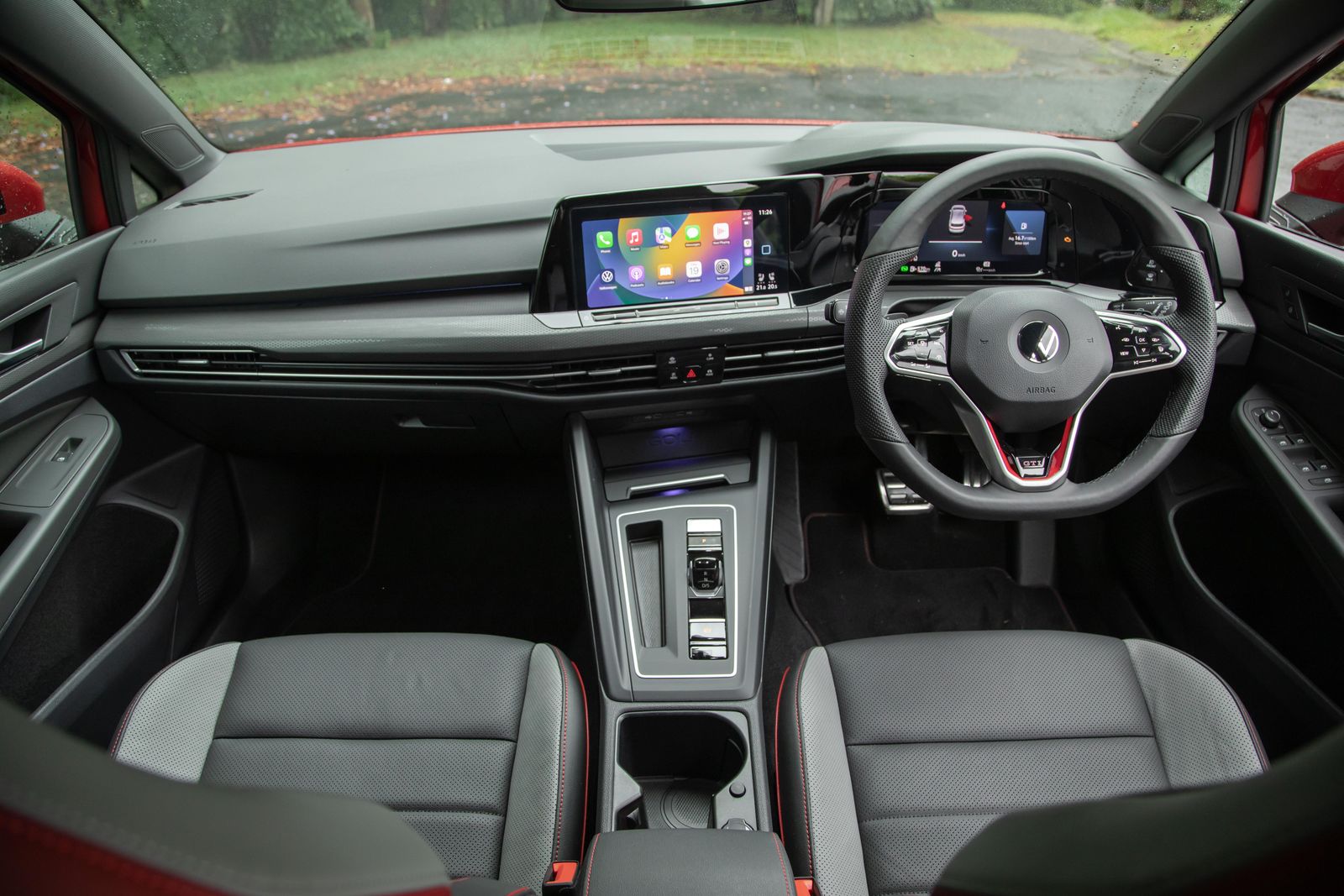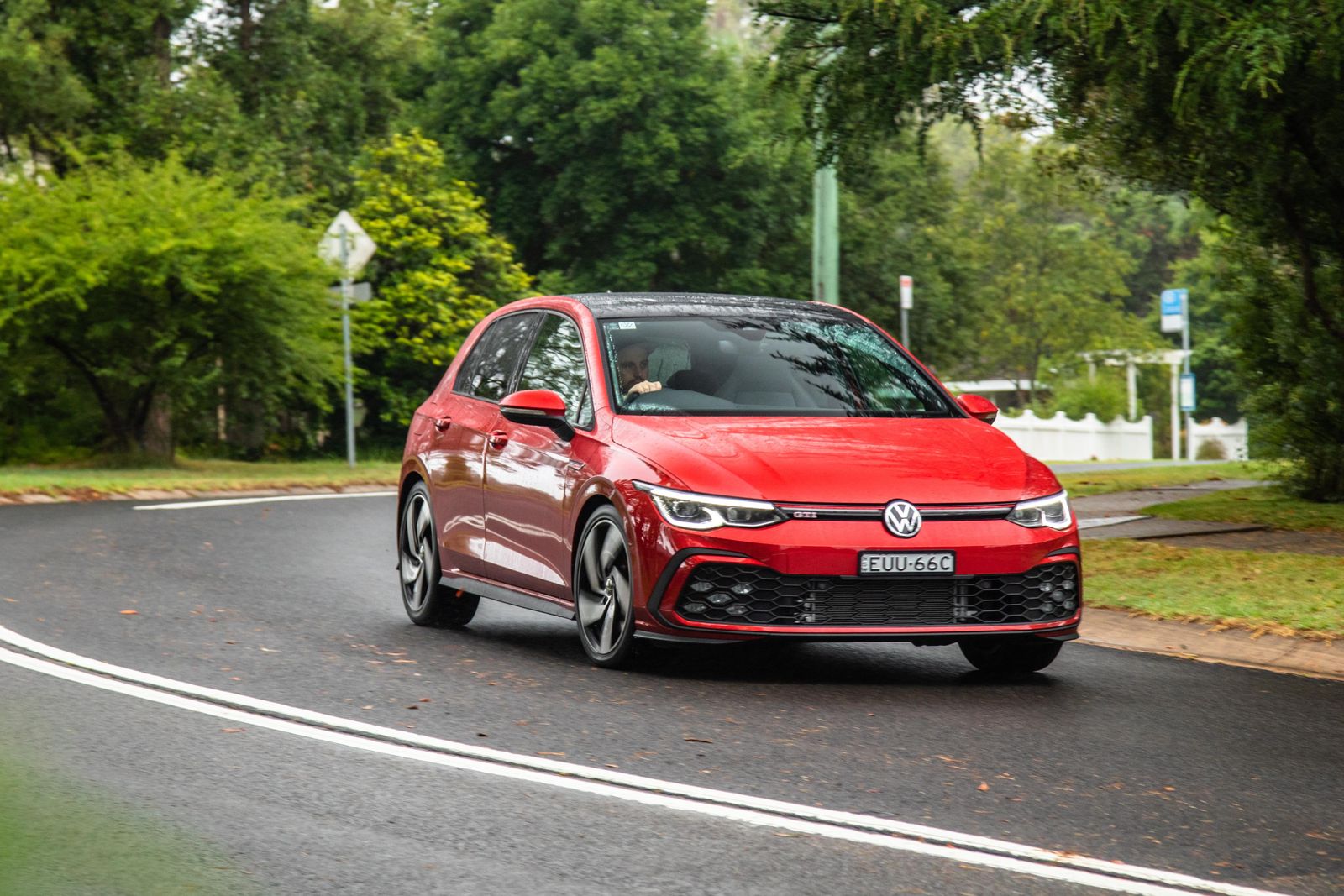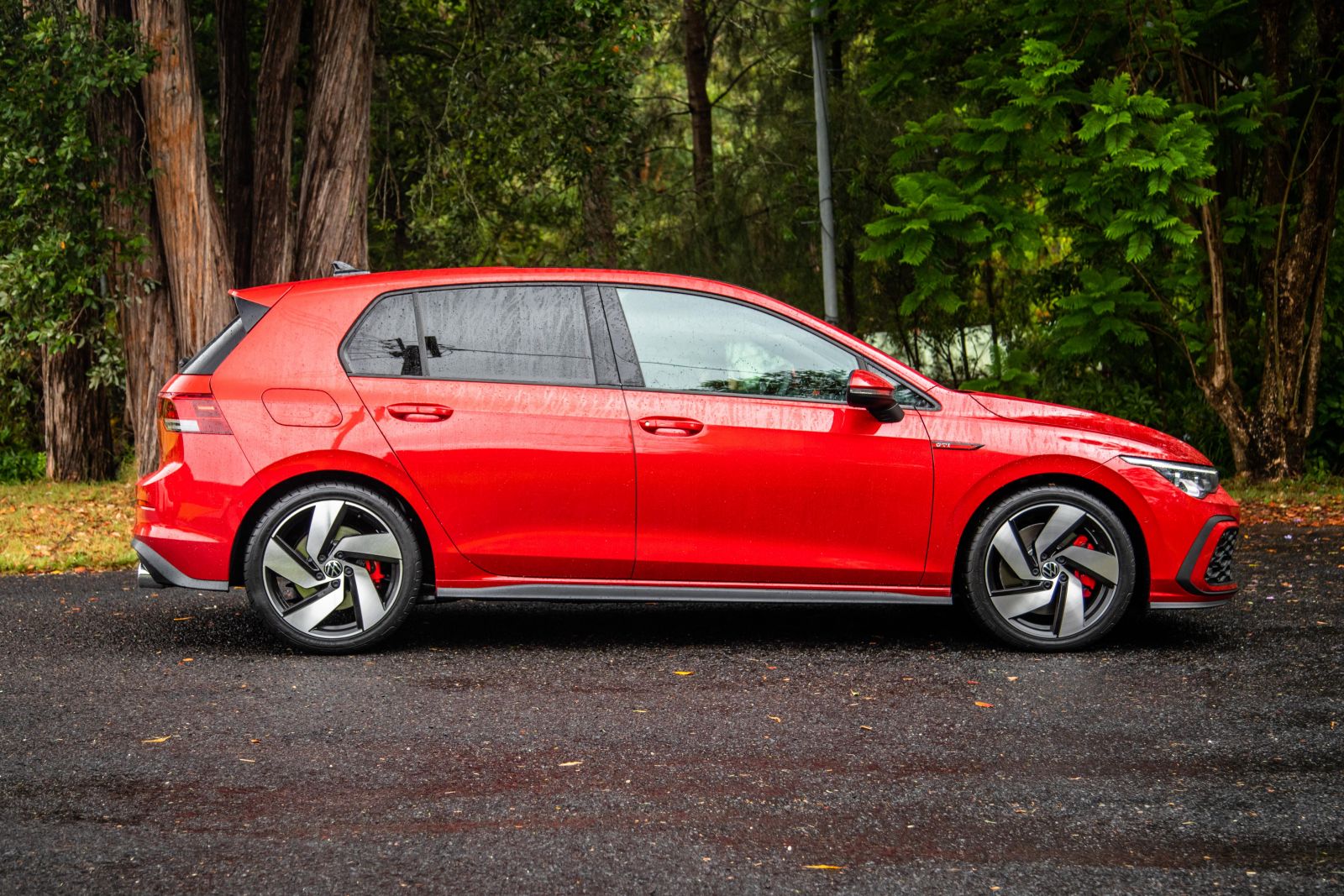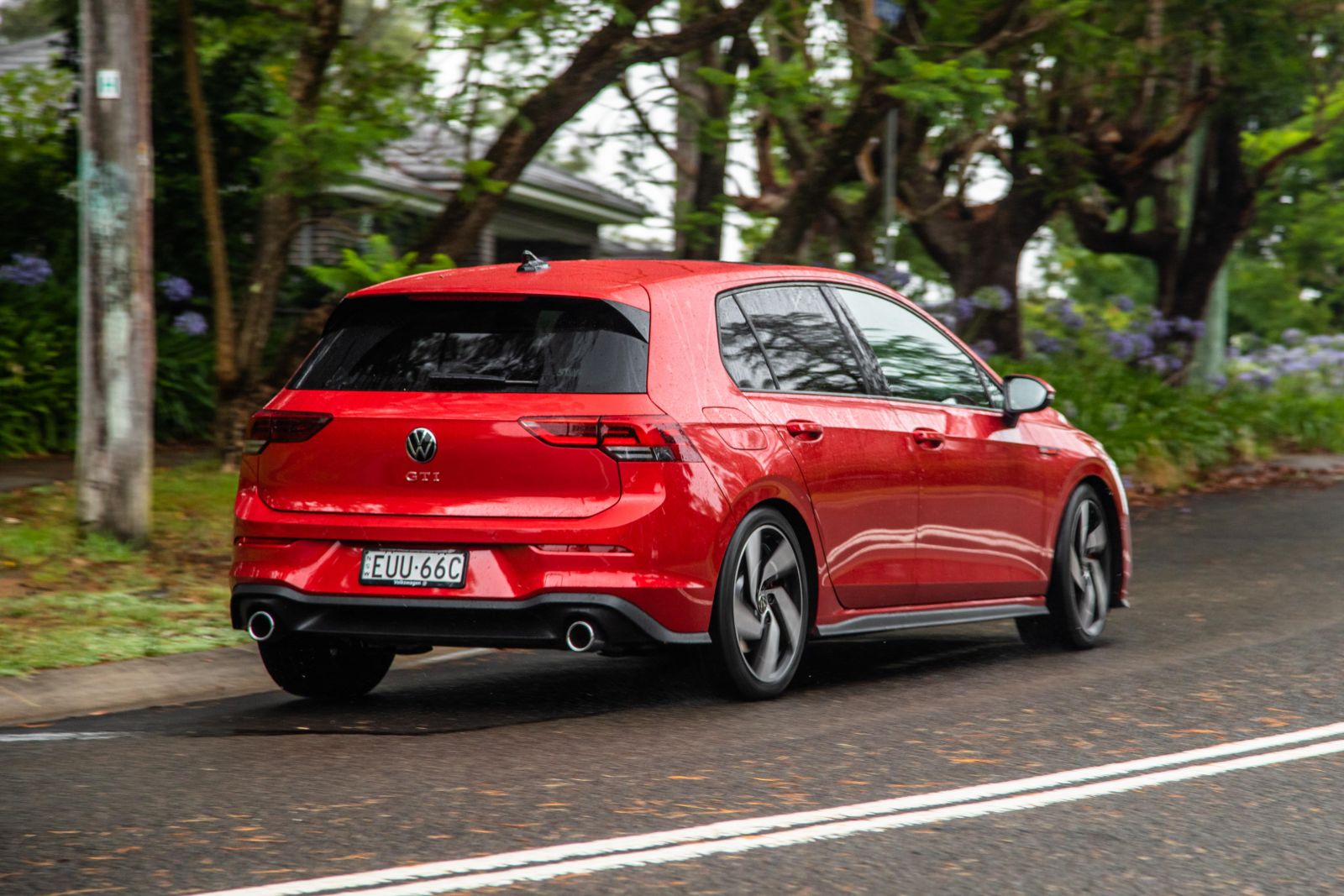Remember when a European hot-hatch was something you could actually afford? Those were the days.
But with rising costs and demand dribbling away from cars that are actually exciting to drive, the humble hot hatch is now something that only the well-heeled might be able to consider.
Take the 2023 Volkswagen Golf GTI, for instance. It is a terrific car, a tremendously accomplished hot-hatch, and formerly the go-to model for so many people after a car that could easily justify spending a little bit more for.
But with pricing for this model creeping well into “you could buy a luxury compact SUV for that” levels, and the hotter Golf R seemingly just a few Uber Eats dinners a week extra to finance, the GTI has found itself in niche territory.
For some, money won’t matter – and they’re the lucky ones. But, there’s a good reason the Hyundai i30 N – which is almost ten grand cheaper! – has forged a spot for itself as the “people’s hot-hatch” these days.
How much does the Volkswagen Golf GTI cost?
The Volkswagen Golf GTI hatchback is now a staggering $55,490 plus on-road costs. Let that settle in.
That means you’re in for at least $60,000 to park one in your driveway. Even more if you want a few luxury extras, as this test car had, you’re looking closer to $65,000 drive-away.
Look, there are more expensive hot-hatches out there, I’m not denying that. The outgoing Renault Megane R.S., for instance, is $63,000 (MSRP); and the Honda Civic Type R is – gulp – $72,000 drive-away.
One could (and will) argue those are more potent devices meant for a more purposeful driver, whereas the Golf is more of a Leatherman tool for buyers. It can do plenty of jobs, and do all of them well, provided the person using it knows what they’re doing.
Below the GTI’s price point there is the aforementioned Hyundai i30 Hatch N (from $46,200) and i30 Sedan N (from $50,200), and the Subaru WRX Sedan (from $44,990)… heck, even in-house competitor, the Cupra Leon, starts at less than the GTI – the equivalent VZ with its GTI-sourced 180kW/370Nm drivetrain, is now priced from $51,990.
What is the Volkswagen Golf GTI like on the inside?
This is a cleverly car – the Golf 8 range is so nicely packaged for a hatchback that measures just 4287mm in length, that it makes the space efficiency of a Mazda 3 or Toyota Corolla (both of which are longer and have smaller boots and tighter back seats) look like it wasn’t considered.
That is the beauty of a boxier body, and the squared-off edges of the Golf might have been softened and streaked a bit over the years, but it is a smart car in terms of cabin space.
There is good storage up front, including cup holders between the seats, a pair of door cubbies with big bottle holders (these are lined, which I love.
It means things don’t tend to rattle when you’re on the move; a clever clamshell holster for your phone that includes a wireless charging pad, a centre console bin, and a reasonable glovebox. Further, the two USB-C ports means you will be charged and ready to go.
I’m not the first person to say this, and if our spy stories are anything to go by, VW might have read the criticism from owners, journalists and YouTubers alike, but the media controls are really not that good.
The screen itself is crisp and pretty quick, but there are menus upon menus that take a lot of learning, and you need to learn a lot because a heap of the controls are beyond the home screen.
There is a selection of home buttons below – Drive Mode, Climate, Safety Assist and Parking Assist – but there are no buttons or dials for the climate controls aside from haptic controls on the ‘bar’ below the media screen. So, you have to go through the screen to change to recirculate air, for instance, or to adjust the fan speed or direction.
That bar also acts as a volume control bar, and one of the issues with it is that it’s not illuminated, so it can take some getting used to – especially if you have a passenger who wants to change things.
For the driver, the haptic touch buttons on the steering wheel are a problem. On numerous occasions my hands moving around the wheel when driving meant I’d hit a button (most often the steering wheel heating button), and it really did start to annoy me.
Back seat space is good for adults or kids. With the driver’s seat set for me (at 182cm/6’0”) I was comfortable enough, with good head, leg, toe and even shoulder room. Three people my size would be a pretty unpleasant squeeze, but if you have smaller occupants, it could be doable.
For parents, you’ll find a pair of ISOFIX points in the window seats in the back, and three top-tether points as well.
There’s a fold-down armrest equipped with a pair of cup holders, large lined door pockets including bottle holsters; plus I really appreciated the map pockets and additional top pockets for storage on the seat backs – perfect to store your youngster’s favourite road trip toys.
There are USB-C ports (x2), and directional air-vents, too.
It has a 374-litre boot which is large enough to fit a folding pram, a few shopping bags and a baby backpack.
But for families with a baby or toddler, bigger trips with additional baggage could prove a bit of a Tetris puzzle. If only they made a GTI wagon, eh? I guess that’s the Skoda Octavia RS’s job…
Fold down those rear seats and there will be 1230L of capacity, and there’s a space-saver spare under the floor.
What’s under the bonnet?
Propelling the Volkswagen Golf GTI is a familiar formula of purposeful powertrain – a 2.0-litre four-cylinder turbocharged petrol engine, a seven-speed dual-clutch automatic transmission with paddle-shifters, and front-wheel drive.
The outputs for this engine are fine, but certainly not as bolshy as some rivals. It produces 180kW of power (5000-6200rpm) and 370Nm of torque (1600-4300rpm).
The claimed 0-100km/h time is a sprightly 6.4 seconds, but get the conditions right and it feels like it might even be quicker than that.
Now, again, a bit of context. The i30 N range has a 2.0-litre turbo four-cylinder engine producing 206kW of power and 392Nm of torque, and does 0-100km/h in a claimed 5.9 seconds. It also costs a lot less. The Subaru WRX has a 2.4-litre boxer turbo-four, with 202kW/350Nm, and a 0-100km/h claim of 6.1 seconds. It costs quite a bit less.
The Cupra Leon VZ runs the same 2.0-litre turbo-four engine as the Golf, with DSG and FWD, and has the same 0-100km/h time of 6.4 seconds. And it also costs less – you get the picture.
How does the Volkswagen Golf GTI drive?
Here’s the thing – as much as it costs, and looking beyond the 0-100 times and power outputs; I am not convinced there is another hot hatch out there for this kind of money that nails the brief as well as the Golf GTI does when it comes to driving.
The powertrain is delightful. It doesn’t feel overpowered at all – in fact, it feels almost perfectly suited to this type of application, with a willing character and zesty response when you need it, but also measured and pliant delivery when you don’t.
The seven-speed dual-clutch DSG has definitely reached “you don’t even notice it’s not a normal automatic gearbox” levels of responsiveness from a standstill, and it really is ridiculously snappy and intuitive at pace.
The steering is a delight – it’s accurate, nicely weighted and still easy to park or pilot through a series of esses on your favourite back road, and the front differential lock helps to ensure you don’t end up with one front tyre spinning as you try and get the power down out of a bendy bit.
The standard adaptive chassis control system is a particularly peachy bit of kit.
That you can tailor the ride comfort to your desires, based on whatever situation you might find yourself and the car in, is a boon. In its softer settings, it’s properly cushy-but-assured like a standard Golf; while at the firmer end of the sliding scale it feels extremely focused and firmly set.
I should say that I recently drove the Golf GTI with 19-inch wheels as well, and that vehicle’s ride was not nearly as sweet as this 18-inch-clad version. I’m not a huge fan of the wheel design, but reckon I’d put up with it for a slightly less rigid ride, especially over sharp edges and in city streets.
It means you can use this car as a runabout in its normal drive mode, or hit a button to change its character to be more menacing.
Another consideration – as with most VW products on the MQB platform, there is quite a bit of road noise to contend with. Again, less of an issue in the car with 18s than it was in the 19-inch-wearing model I drove.
Look, it isn’t’ much of a show-off as the i30 N – there aren’t as many “look at me” pop and crackle noises, for instance, it’s less lairy in its configurability, and it rides considerably more comfortably.
But, I think the price you’re paying is ultimately for refinement and liveability. Money well spent, then?
What do you get?
The Golf GTI comes decently equipped for the money, though, as mentioned, it costs more than most rivals.
Golf GTI highlights:
- 18-inch alloy wheels
- LED performance headlights
- LED grille strip
- LED fog-lights
- LED tail lights
- Adaptive Chassis Control
- GTI exterior trim and highlights
- Front differential lock
- Progressive steering
- Twin exhaust pipes
- Sports seats with tartan (Scale Paper) trim
- Auto headlights with auto high-beam
- Rain-sensing wipers
- 10.25-inch Digital Cockpit Pro instruments
- 10.0-inch touchscreen infotainment system
- Wireless Apple CarPlay, Android Auto
- DAB+ digital radio
- 7-speaker sound system
- Satellite navigation
- Auto-dimming rear-view mirror
- Power-folding side mirrors
- Wireless phone charger
- Tri-zone climate control
- 30-colour interior ambient lighting
- Keyless entry and start
- Luggage partition
- Emergency Assist
- Exit warning system
- Rear privacy glass
The Golf GTI tested in this review was also fitted with the $3900 Luxury Package; which includes leather seat trim, electric driver’s seat with memory, heated and cooled front seats, a heated steering wheel, and a panoramic sunroof. And for those who appreciate features like that, it’s well worth the money.
The Golf GTI also comes with free metallic or premium paint – unless you choose the colour this car was. That hue, Kings Red, is a $300 option, while Deep Black Pearl, Atlantic Blue Metallic, Dolphin Grey Metallic, Moonstone Grey Premium and Pure White Solid are all no-cost options.
Is the Volkswagen Golf GTI safe?
If you buy an MY23 Golf GTI, it’s going to be a little bit safer than if you’d bought a 2022 version – there is a caveat, though.
All the mainstream MY23 Golf variants (Golf, Life, Style) scored a front-centre airbag from June 2022 production, while the performance variants (R-Line, GTI and R) had that item added from November 2022 production.
So, you might want to check the build date, and also see if it has one of those giveaway tags on an inner seam of one of the front seats.
Beyond that, the Golf 8 range has a further eight airbags (dual front, front side, rear side and full-length curtain coverage), and it achieved the maximum five-star ANCAP safety rating in 2019.
It achieved 95 per cent for adult occupant protection, 89 per cent for child occupant protection, 76 per cent for vulnerable road user protection and 80 per cent for safety assist.
Standard safety features include:
- 9 airbags incl. front-centre
- Autonomous emergency braking
- Pedestrian, Cyclist detection
- Junction assist
- Adaptive cruise control with stop/go
- Traffic Jam Assist
- Travel Assist
- Adaptive cruise + lane centring
- Blind-spot assist
- Rear cross-traffic alert
- Lane-keep assist
- Exit warning
- Manoeuvre braking
- Tyre pressure monitoring
- Driver fatigue detection
How much does the Volkswagen Golf GTI cost to run?
The Volkswagen range is covered by a five-year, unlimited kilometre warranty, which is good, but not setting any new standards.
Service intervals are every 12 months/15,000km, and there are either capped-price servicing, or prepaid “Care Plans”, which are the smarter option. They save you money, and you can pass the benefit on to the next owner, if you decide to sell it.
Bundle that cost into your financing or pay for it upfront and you get either three years/45,000km ($1600) or five years/75,000km ($2800) of cover, and by paying ahead of time you will save hundreds of bucks over the life of the car – $786, to be precise, for the five-year plan, and $273 off the three-year sum.
Roadside assistance is included for 12 months at time of purchase, and it renews each time you service your car with VW.
The official combined cycle fuel consumption figure is 7.0 litres per 100 kilometres for the Golf GTI. So, that’s what you should be able to achieve across a mix of driving. My few hundred kilometres of mixed driving saw a real-world return of 8.2L/100km, which I still think is pretty respectable considering the breadth of ability this car possesses.
The Golf is fitted with a 50-litre fuel tank, and you will need to fill its guts with good stuff – it requires 95 RON premium unleaded at a minimum.
CarExpert’s Take on the Volkswagen Golf GTI
You pay a higher price to get a better car, and I think the Volkswagen Golf GTI can just – only just, by the barest of margins – justify the cost being asked for it.
It may no longer be an “affordable” hot-hatch, but it’s still a bloody good one, and arguably the most liveable one on the market today from a non-luxury brand.
Click the images for the full gallery
















